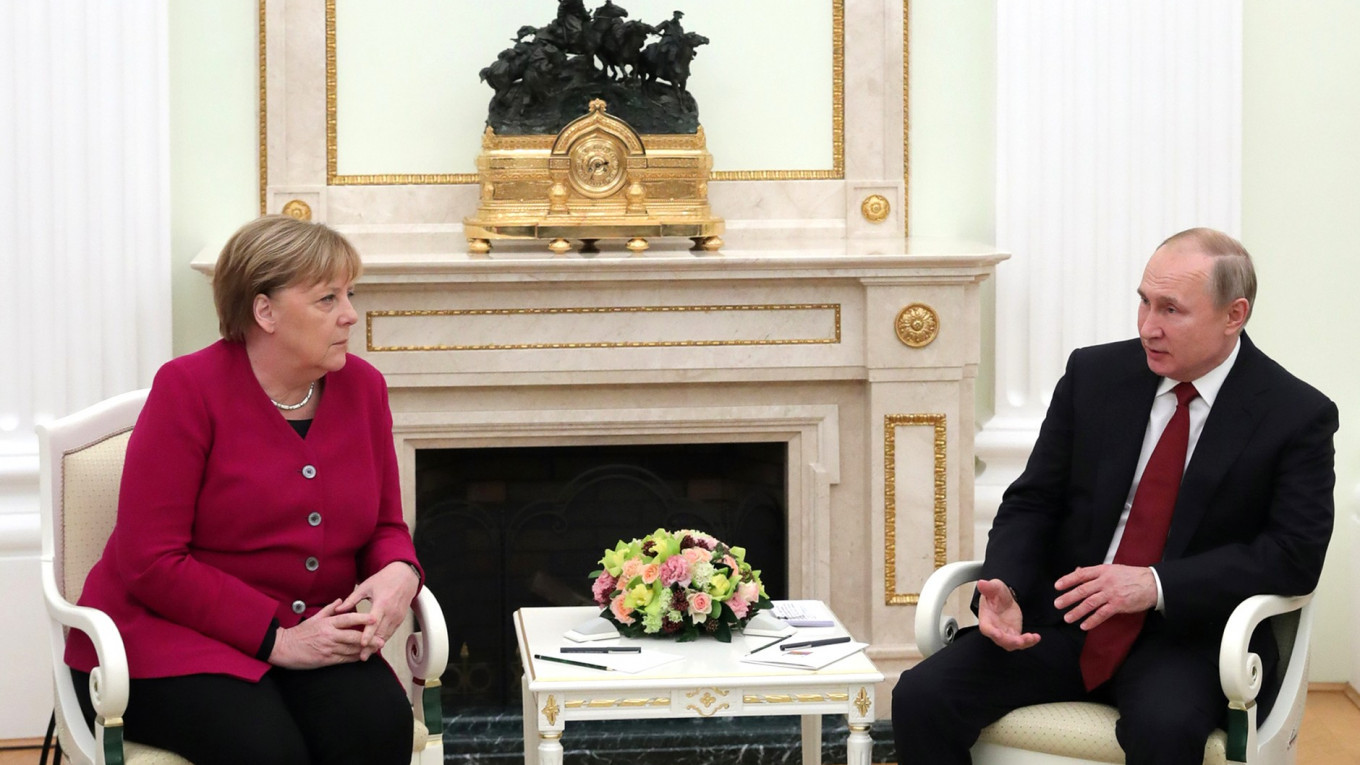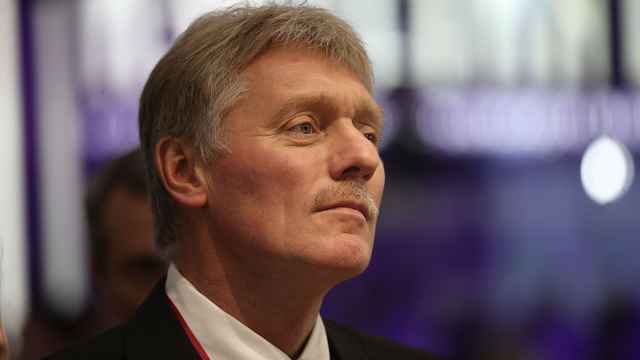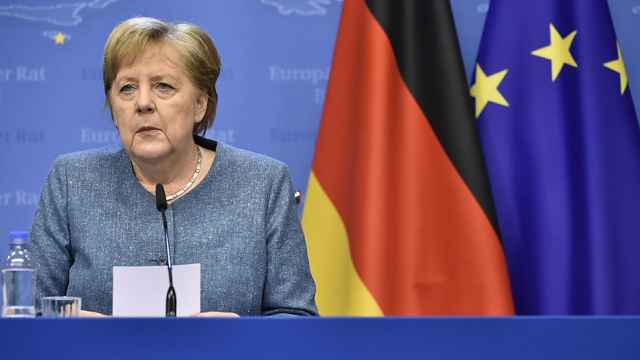The Kremlin said Wednesday that Russian President Vladimir Putin and German Chancellor Angela Merkel had expressed their satisfaction with the near completion of the controversial Nord Stream 2 pipeline during phone talks.
"The leaders are satisfied with the construction of Nord Stream 2 nearing completion," the Kremlin said in a statement after the talks.
During the phone call, Putin praised Germany's "commitment" to the project, the Kremlin said, stressing that it is "purely commercial" and aimed at strengthening the energy security of Germany and the European Union.
Earlier Wednesday the United States announced it had reached an agreement with Germany on the Nord Stream 2 pipeline that would threaten Russia with sanctions and seek to extend the transit of gas through Ukraine.
The nearly finished 10-billion-euro ($12-billion) pipeline is set to double Russian gas supplies to Germany, Europe's largest economy.
But the project has been fiercely opposed by the United States and several European countries which argue that it will increase energy dependence on Russia and Moscow's geopolitical clout.
The pipeline bypasses Ukraine's gas infrastructure, depriving the nation of around a billion euros annually in transit fees and, Kiev fears, removing a key check on potential Russian aggression in the region.
The Kremlin said Wednesday that Putin and Merkel had discussed a possible extension of a gas transit agreement between Moscow and Kiev.
"The Russian president and the German Chancellor touched upon a possibility of extending an agreement between Gazprom and Ukraine's Naftogaz on the transit of gas through Ukrainian territory beyond 2024," the Kremlin said without giving any other details.
Victoria Nuland, the under secretary of state for political affairs, said that Germany had agreed to work alongside the United States to press Russia to extend by 10 years a transit agreement through Ukraine that is due to expire at the end of 2024.
A Message from The Moscow Times:
Dear readers,
We are facing unprecedented challenges. Russia's Prosecutor General's Office has designated The Moscow Times as an "undesirable" organization, criminalizing our work and putting our staff at risk of prosecution. This follows our earlier unjust labeling as a "foreign agent."
These actions are direct attempts to silence independent journalism in Russia. The authorities claim our work "discredits the decisions of the Russian leadership." We see things differently: we strive to provide accurate, unbiased reporting on Russia.
We, the journalists of The Moscow Times, refuse to be silenced. But to continue our work, we need your help.
Your support, no matter how small, makes a world of difference. If you can, please support us monthly starting from just $2. It's quick to set up, and every contribution makes a significant impact.
By supporting The Moscow Times, you're defending open, independent journalism in the face of repression. Thank you for standing with us.
Remind me later.






